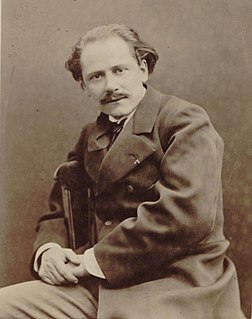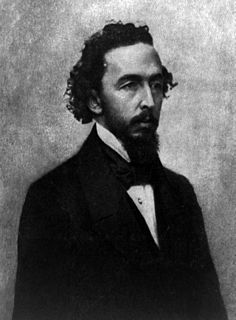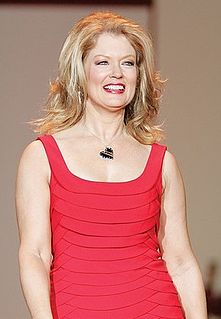A Quote by Jules Massenet
I have departed from this planet and I have left behind my poor earthly ones with their occupations which are as many as they are useless; at last I am living in the scintillating splendor of the stars, each of which used to seem to me as large as millions of suns.
Related Quotes
I went to the librarian and asked for a book about stars.... And the answer was stunning. It was that the Sun was a star but really close. The stars were suns, but so far away they were just little points of light.... The scale of the universe suddenly opened up to me. It was a kind of religious experience. There was a magnificence to it, a grandeur, a scale which has never left me. Never ever left me.
We are here because over billions of years, countless variables fell into place, any of which could have taken another path. We are essentially a beautiful fluke, as are the millions of other species with which we share this planet. Our cells are composed of atoms and dust particles from distant galaxies, and from the billions of living organisms that inhabited this planet before us.
Aristotle taught that stars are made of a different matter than the four earthly elements— a quintessence— that also happens to be what the human psyche is made of. Which is why man’s spirit corresponds to the stars. Perhaps that’s not a very scientific view, but I do like the idea that there’s a little starlight in each of us.
I wrote a piece from North Korea called Visit to a Small Planet which is a line I stole from a play of Gore Vidal's, because it did seem to me as if I had left this planet completely to go on this visit to the northern part of the Korean Peninsula, and it was as if coming back from another spatial body altogether.
If some one loves a flower of which just one example exists among all the millions and millions of stars, that's enough to make him happy when he looks at the stars. He tells himself, "My flower's up there somewhere. . . ." But if the sheep eats the flower, then for him it's as if, suddenly, all the stars went out. And that isn't important?
Stars, too, were time travelers. How many of these ancient points of light were the last echoes of suns now dead? How many had been born but their light not yet come this far? If all the suns but ours collapsed tonight, how many lifetimes would it take us to realize that we were alone? I had always known the sky was full of mysteries - but not until now had I realized how full of them the earth was.
It’s the leftover humans. The survivors. They’re the ones I can’t stand to look at, although on many occasions I still fail. I deliberately seek out the colors to keep my mind off them, but now and then, I witness the ones who are left behind, crumbling among the jigsaw puzzle of realization, despair, and surprises. They have punctured hearts. They have beaten lungs. Which in turn brings me to the subject I am telling you about tonight, or today, or whatever the hour and color. It’s the story of one of those perpetual survivors –an expert at being left behind.
We are living as if we had three planets' worth of resources to live with rather than just one. We need to cut by about two-thirds our ecological footprint. For that we need one planet farming as well as one planet living - one planet farming which minimises the impact on the environment of food production and consumption, and which maximises its contribution to renewal of the natural environment








































